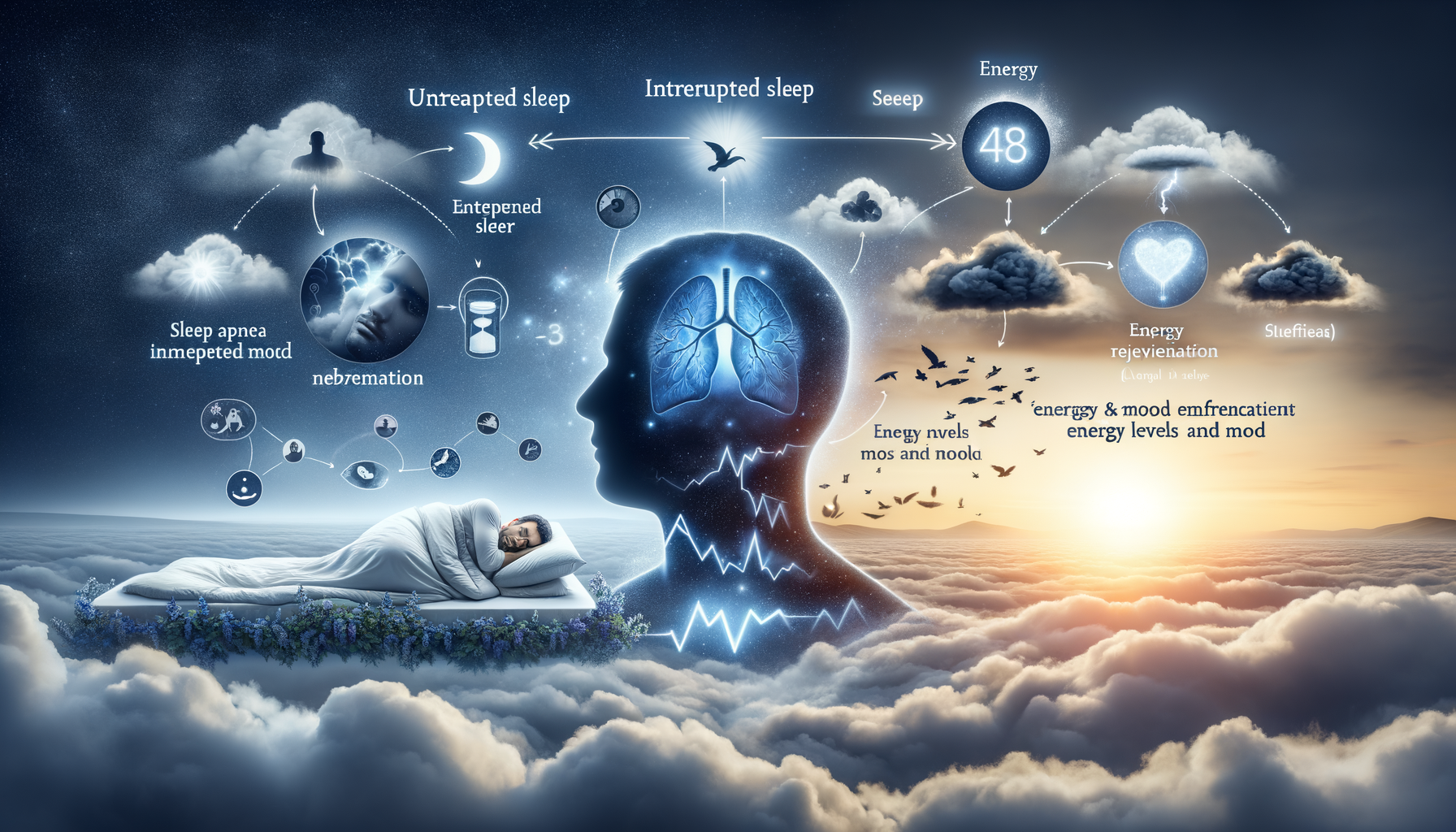Understanding Sleep Apnea
Sleep apnea is a common but serious sleep disorder where breathing repeatedly stops and starts during sleep. It is characterized by loud snoring, gasping for air during sleep, and excessive daytime sleepiness. There are three main types: obstructive sleep apnea (OSA), central sleep apnea (CSA), and complex sleep apnea syndrome. OSA is the most prevalent, caused by a blockage of the airway, often when the soft tissue in the back of the throat collapses during sleep.
Central sleep apnea, on the other hand, is less common and involves the brain failing to send proper signals to the muscles that control breathing. Complex sleep apnea syndrome is a combination of both obstructive and central sleep apnea. Recognizing the type of sleep apnea is crucial for effective treatment, as each type requires a different approach. Understanding these distinctions helps in tailoring a treatment plan that addresses the specific needs of the individual.
The Impact on Energy Levels
One of the most immediate and noticeable effects of sleep apnea is its impact on energy levels. The repeated interruptions in breathing can lead to fragmented sleep, preventing the individual from reaching the deep, restorative stages of sleep. As a result, people with sleep apnea often wake up feeling unrefreshed, regardless of how many hours they have spent in bed. This lack of quality sleep can manifest as chronic fatigue, affecting daily activities and reducing productivity.
Furthermore, the constant struggle for breath can put additional stress on the body, leading to increased levels of cortisol, a stress hormone. Elevated cortisol levels are associated with feelings of tiredness and lethargy. Addressing sleep apnea is vital for restoring energy levels, allowing individuals to feel more alert and engaged throughout the day.
Mood and Psychological Effects
Beyond physical fatigue, sleep apnea can have significant psychological effects. The lack of restful sleep can lead to mood swings, irritability, and even depression. Research has shown that people with sleep apnea are at a higher risk of developing mood disorders. The constant fatigue and the stress of dealing with an untreated condition can exacerbate feelings of anxiety and depression.
Moreover, the social implications of sleep apnea, such as snoring, can strain relationships, leading to feelings of isolation or embarrassment. Addressing sleep apnea not only improves mood but also enhances overall mental well-being, contributing to a more positive outlook on life.
Treatment Options for Sleep Apnea
Treating sleep apnea involves a multi-faceted approach. The most common treatment for obstructive sleep apnea is the use of a Continuous Positive Airway Pressure (CPAP) machine, which keeps the airway open by providing a steady stream of air through a mask. For some, lifestyle changes such as weight loss, quitting smoking, or changing sleep positions can significantly improve symptoms.
In more severe cases, surgical options may be considered, such as removing excess tissue from the throat or repositioning the jaw. It’s important for individuals to work closely with healthcare providers to determine the most effective treatment plan. By addressing the underlying causes of sleep apnea, individuals can improve their sleep quality and, consequently, their overall health.
Conclusion: Taking Control of Your Sleep Health
Sleep apnea is a condition that demands attention, not only for the sake of a good night’s sleep but for overall health and well-being. By understanding the condition and exploring the various treatment options, individuals can take control of their sleep health, leading to improved energy, mood, and quality of life. Prioritizing sleep health is a crucial step in enhancing daily functioning and long-term health outcomes.




Leave a Reply